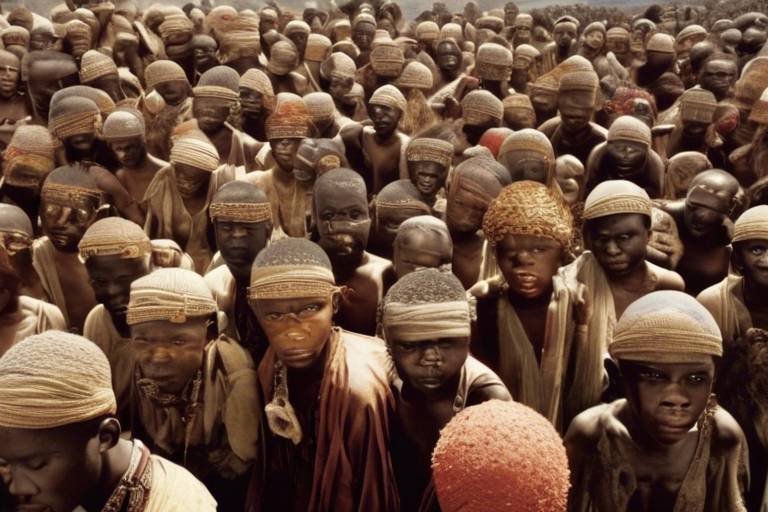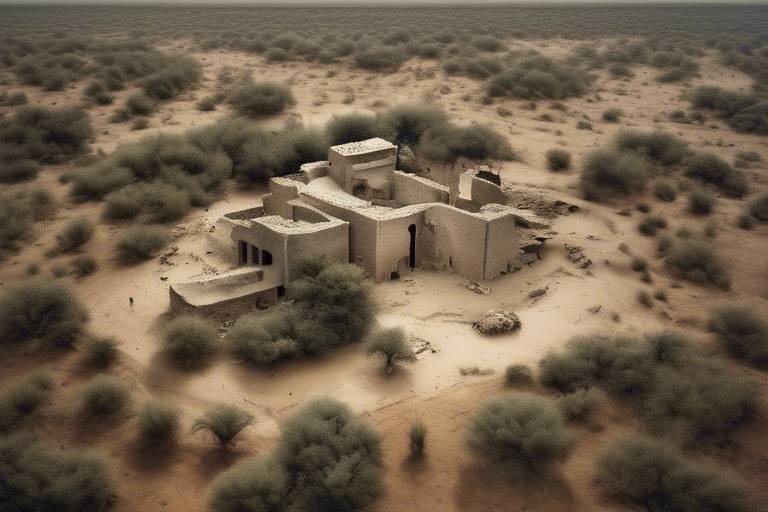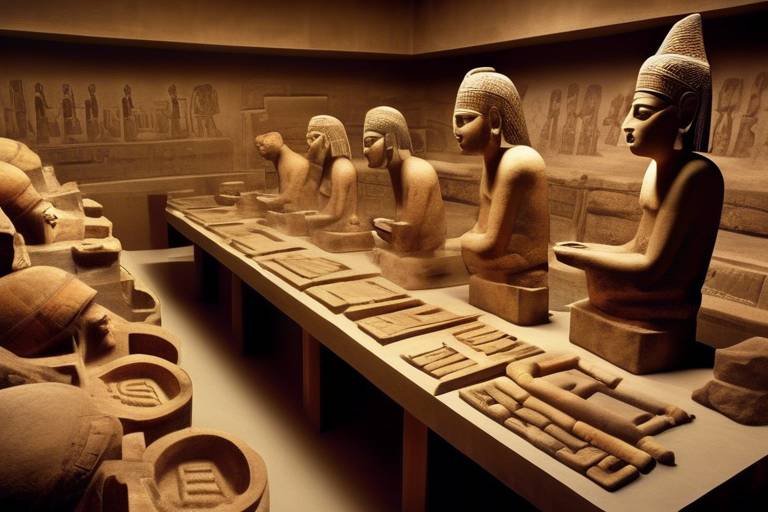The Influence of Ancient African Kingdoms on Modern Culture
The history of ancient African kingdoms is a treasure trove of inspiration that continues to shape and influence modern culture worldwide. From the majestic pyramids of Egypt to the intricate bronze sculptures of Benin, these civilizations have left an indelible mark on art, architecture, language, trade, and governance. Let's delve into the profound impact of some of the most notable ancient African kingdoms on contemporary society.
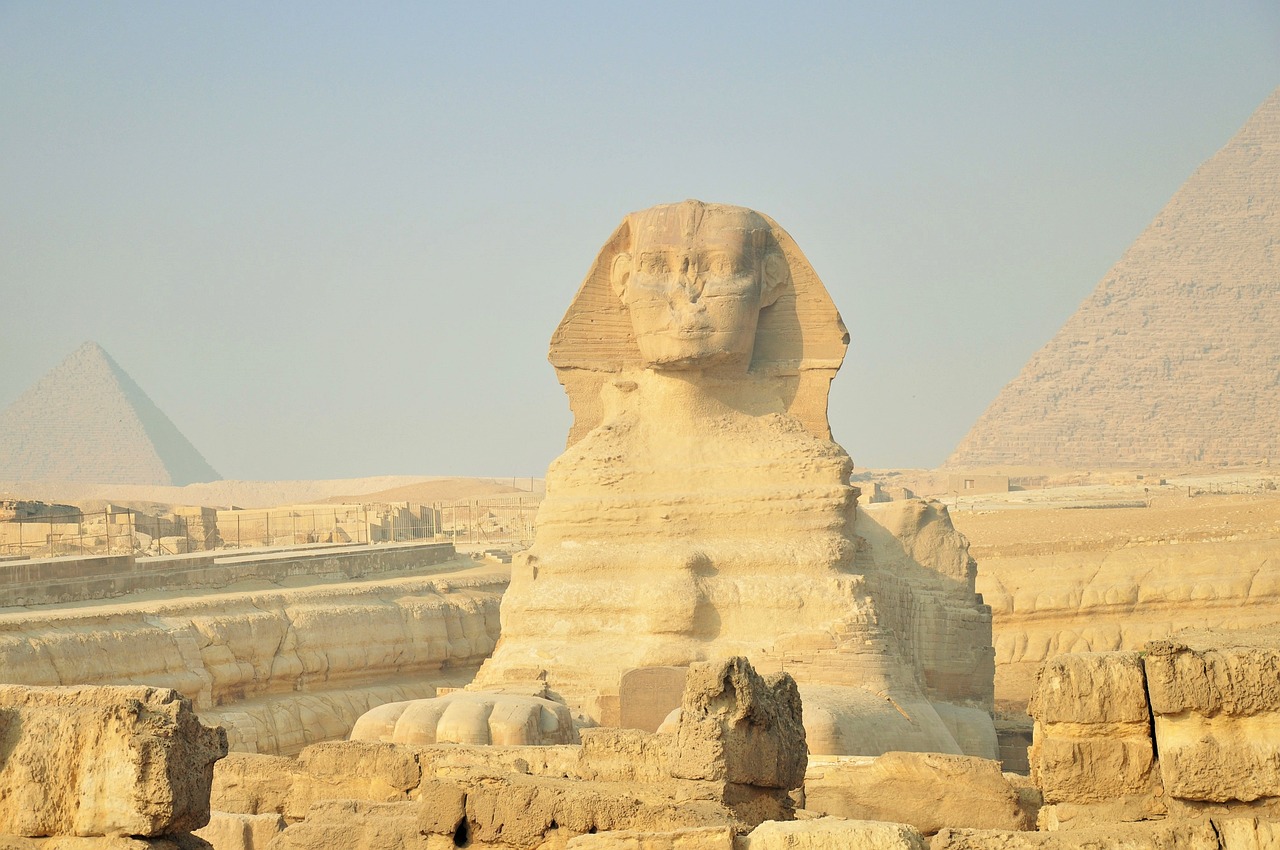
Ancient Egyptian Civilization
Exploring how the rich history, art, architecture, and traditions of ancient African kingdoms continue to impact and inspire modern culture across the globe.
Ancient Egypt holds a profound influence on modern culture, with its legacy evident in various aspects of art, architecture, religion, and symbolism. The iconic pyramids, temples, and hieroglyphics of Egypt continue to captivate and inspire artists, architects, and designers worldwide. The intricate symbolism and mythology of ancient Egyptian religion have also left a lasting mark on contemporary spiritual beliefs and practices.
The artistry of ancient Egyptian civilization, characterized by its elaborate wall paintings, sculptures, and jewelry, serves as a timeless source of inspiration for creatives across different mediums. The grandeur and precision of Egyptian architecture, exemplified by structures like the Sphinx and the Luxor Temple, showcase a level of sophistication that still astounds modern architects and engineers.
Furthermore, the enduring fascination with Egyptian symbols such as the Ankh, the Eye of Horus, and the Scarab beetle underscores the deep cultural resonance that ancient Egypt continues to hold in the collective imagination. From fashion to literature, these symbols find new interpretations and meanings, bridging the gap between the past and the present.
Moreover, the advancements made by the ancient Egyptians in fields like mathematics, astronomy, and medicine have laid the foundation for modern scientific knowledge and innovation. Their expertise in mummification techniques and preservation practices has not only contributed to the understanding of human anatomy but also influenced contemporary approaches to healthcare and preservation.
In essence, the legacy of ancient Egyptian civilization serves as a testament to the enduring power of culture and heritage in shaping the world we live in today, inviting us to delve deeper into the mysteries and marvels of this ancient civilization.
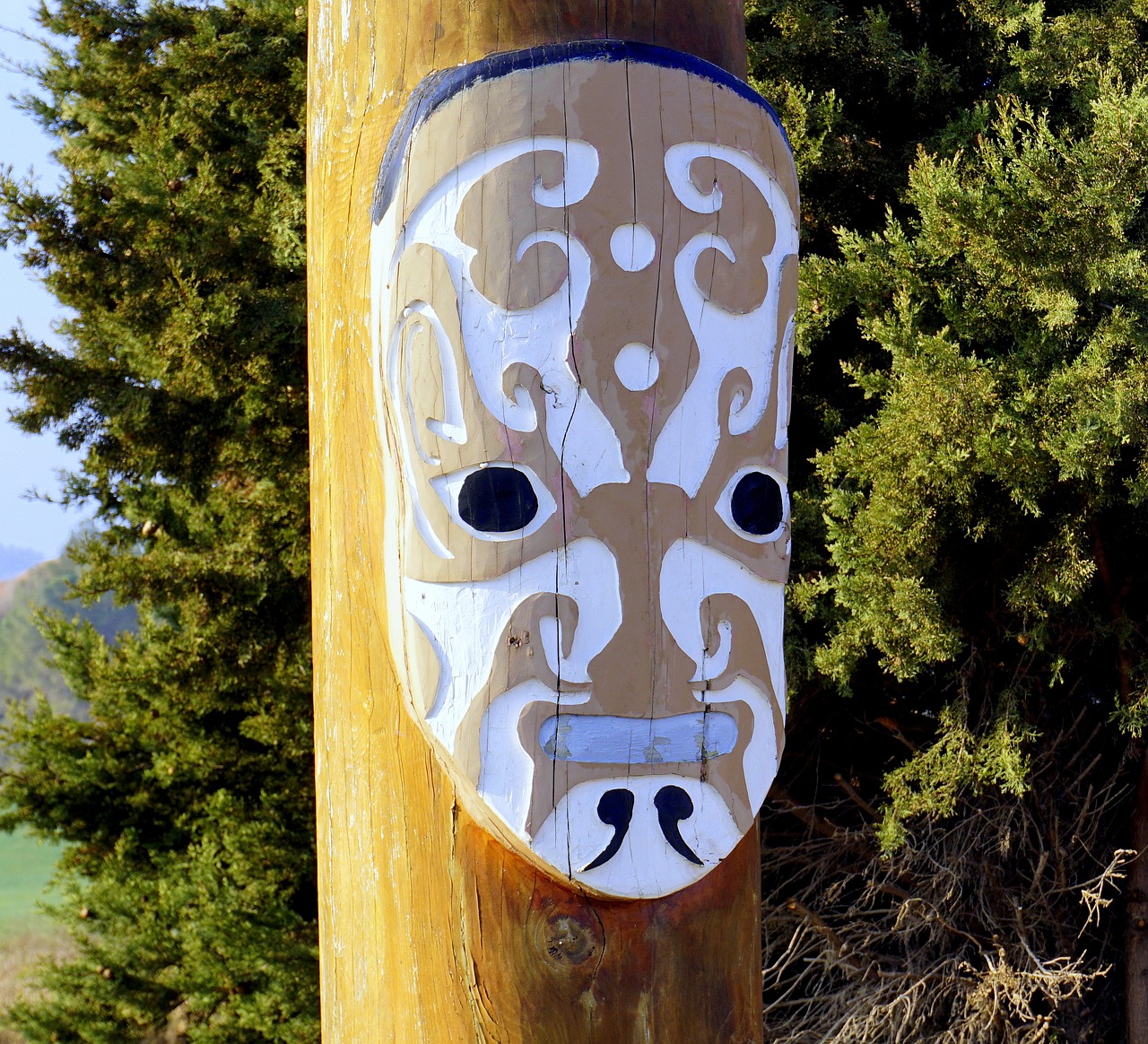
Kingdom of Kush
The Kingdom of Kush, located in present-day Sudan, was a powerful ancient African civilization that thrived alongside ancient Egypt. Known for its rich history and cultural exchanges, the Kingdom of Kush played a significant role in shaping modern society. One of the most notable influences of the Kingdom of Kush is its impact on language. The kingdom's interactions with various cultures along trade routes led to the development of a unique linguistic heritage, blending different dialects and creating a diverse linguistic landscape.
Moreover, the Kingdom of Kush was instrumental in facilitating trade between Africa and the Mediterranean world. Its strategic location along the Nile River allowed for the exchange of goods, ideas, and technologies, contributing to the cultural enrichment of both regions. The trade routes established by the Kingdom of Kush not only boosted economic prosperity but also fostered cultural exchange, influencing art, architecture, and societal norms.
Furthermore, the Kingdom of Kush left a lasting legacy in the field of architecture. The civilization's monumental structures, such as the pyramids at Meroe and the royal palaces, showcased advanced engineering skills and architectural prowess. These architectural marvels not only served as symbols of power and prestige but also inspired future generations of builders and architects.
In addition to its linguistic and architectural contributions, the Kingdom of Kush played a crucial role in the development of religious practices. The kingdom's belief systems, which incorporated elements of Egyptian and indigenous African religions, influenced spiritual traditions in the region. The syncretism of religious beliefs in Kushite society created a unique cultural tapestry that continues to resonate in modern-day spiritual practices.
In conclusion, the Kingdom of Kush's influence on language, trade routes, architecture, and religious practices has left an indelible mark on modern culture. By exploring the legacy of this ancient African civilization, we gain a deeper understanding of the interconnectedness of past and present societies, highlighting the enduring impact of Africa's rich history on contemporary global culture.

Great Zimbabwe
Exploring how the rich history, art, architecture, and traditions of ancient African kingdoms continue to impact and inspire modern culture across the globe.
Great Zimbabwe, a prominent ancient kingdom in southern Africa, holds a significant place in the cultural heritage of the continent. The stone structures of Great Zimbabwe, such as the iconic Great Enclosure and the Hill Complex, stand as a testament to the advanced architectural skills of its builders. The intricate stonework and the urban planning of the city demonstrate a high level of craftsmanship and engineering prowess that continue to awe architects and historians alike.
The trade networks established by Great Zimbabwe connected the kingdom to distant regions, facilitating the exchange of goods, ideas, and cultural practices. This cultural exchange left a lasting impact on contemporary African architecture and design, with elements of Great Zimbabwe's style influencing modern structures and urban planning in the region. The kingdom's legacy also plays a crucial role in shaping the cultural identity of present-day African societies, preserving a sense of pride and connection to their historical roots.
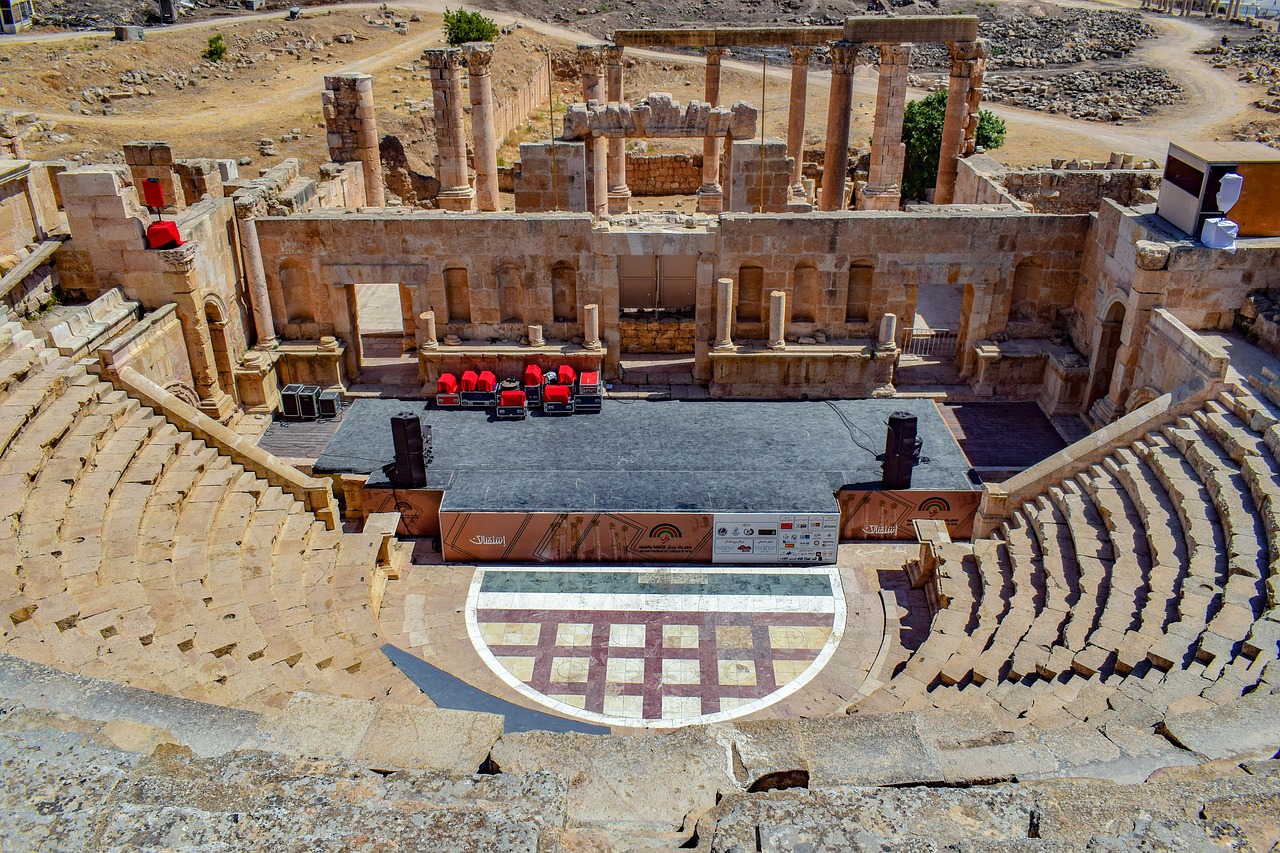
Kingdom of Aksum
The Kingdom of Aksum, located in present-day Ethiopia and Eritrea, holds a significant place in history for its lasting impact on religion, language, and trade practices. This ancient kingdom, known for its impressive obelisks and stone-carved churches, played a crucial role in the spread of Christianity in the region. The Aksumites developed their own written language, Ge'ez, which later evolved into Amharic and Tigrinya, influencing the linguistic diversity of the area.
Moreover, the Kingdom of Aksum was a major player in the trade network of the ancient world, connecting the Mediterranean with the Indian Ocean. The port of Adulis served as a vital hub for maritime trade, facilitating the exchange of goods such as ivory, gold, and spices. This commercial prosperity not only enriched the kingdom but also fostered cultural exchange with distant lands.
One of the most remarkable achievements of the Aksumites was the construction of intricate stone structures, including towering obelisks and elaborate palaces. These architectural marvels not only showcased the kingdom's wealth and power but also reflected their advanced engineering skills and artistic sensibilities. The iconic obelisks of Aksum, some of which still stand today, are symbols of the kingdom's grandeur and cultural heritage.
In addition to their architectural prowess, the Aksumites were known for their religious practices, particularly the establishment of one of the earliest Christian churches in the world. The Church of St. Mary of Zion in Aksum is believed to house the original Ark of the Covenant, making it a revered pilgrimage site for Ethiopian Orthodox Christians. This religious center remains a testament to the enduring spiritual legacy of the Kingdom of Aksum.
Overall, the Kingdom of Aksum left a lasting imprint on modern cultural heritage through its religious, linguistic, and architectural contributions. The legacy of Aksum continues to inspire and intrigue scholars and visitors alike, offering a glimpse into the rich tapestry of Africa's ancient civilizations.

Kingdom of Mali
The Kingdom of Mali holds a significant place in the annals of African history, renowned for its cultural, economic, and educational contributions that continue to resonate in modern societies. Situated in West Africa, Mali flourished between the 13th and 16th centuries, leaving a lasting impact on the region and beyond. The empire's wealth, derived from lucrative trade routes, particularly in gold and salt, fueled its prosperity and enabled the development of thriving urban centers like Timbuktu, known for its scholarly pursuits and architectural marvels.
One of the most notable figures in Mali's history is Mansa Musa, the legendary emperor whose extravagant pilgrimage to Mecca in the 14th century brought global attention to the wealth and grandeur of the empire. Musa's generosity and lavish spending along his journey not only showcased Mali's riches but also established it as a center of power and culture in the medieval world.
The Kingdom of Mali's influence extended far beyond its borders, shaping trade networks that connected West Africa to the Mediterranean and the Middle East. This exchange of goods, ideas, and technologies facilitated cultural diffusion and contributed to the enrichment of societies across continents. Mali's emphasis on education and scholarship, exemplified by the renowned Sankore University in Timbuktu, attracted scholars from far and wide, fostering a vibrant intellectual environment that advanced knowledge in various fields.
Moreover, Mali's cultural heritage, including its art, music, and oral traditions, continues to inspire contemporary African artists and creators, reflecting the enduring legacy of this remarkable kingdom. The intricate mud-brick architecture of Mali's mosques and palaces, adorned with intricate geometric designs and symbolic motifs, serves as a testament to the empire's artistic prowess and architectural ingenuity.
In essence, the Kingdom of Mali stands as a testament to the resilience, creativity, and ingenuity of African civilizations, showcasing the enduring impact of its legacy on modern African societies and the global community at large.

Kingdom of Benin
The Kingdom of Benin, located in present-day Nigeria, was renowned for its artistic achievements, political structures, and metallurgical innovations that continue to influence contemporary art and governance. The kingdom's intricate bronze and ivory sculptures, often depicting historical events and royalty, are celebrated for their craftsmanship and cultural significance. These artifacts not only serve as a testament to the kingdom's artistic prowess but also provide valuable insights into the history and traditions of the Benin people.
Moreover, the political organization of the Kingdom of Benin, characterized by a centralized monarchy with a divine ruler known as the Oba, has left a lasting impact on the governance structures of modern African societies. The Oba's authority was supported by a sophisticated administrative system that oversaw various aspects of society, including trade, justice, and diplomacy. This system of governance contributed to the kingdom's stability and prosperity, fostering a sense of unity and identity among its people.
In addition to its artistic and political achievements, the Kingdom of Benin was also known for its advanced metallurgical techniques, particularly in the production of brass and bronze objects. The intricate casting methods used by Benin artisans to create objects such as plaques, masks, and ceremonial regalia showcased the kingdom's expertise in metalworking. These metallurgical innovations not only served as symbols of wealth and power but also played a significant role in trade relations with neighboring regions.
The legacy of the Kingdom of Benin lives on in contemporary art forms that draw inspiration from its rich cultural heritage. Artists and designers continue to incorporate elements of Benin art and symbolism into their work, paying homage to the kingdom's artistic legacy. Furthermore, the enduring influence of Benin's political structures and metallurgical innovations can be seen in the governance practices and industrial capabilities of modern African societies, highlighting the lasting impact of this ancient kingdom.

Kingdom of Axum
The Kingdom of Axum, located in present-day Ethiopia and Eritrea, was a powerful ancient civilization that significantly influenced modern cultural heritage. Known for its maritime trade, religious practices, and architectural achievements, Axum played a vital role in shaping the region's history and cultural identity.
One of the most notable contributions of the Kingdom of Axum was its maritime trade network, which connected the region to distant lands across the Red Sea and Indian Ocean. This facilitated the exchange of goods, ideas, and cultural practices, enriching the kingdom's society and influencing trade routes that continue to impact global commerce today.
Religion held a central place in Axumite society, with Christianity becoming the state religion in the 4th century AD. The Kingdom of Axum was one of the first states to officially adopt Christianity, leaving a lasting legacy on the religious landscape of the region and beyond.
The architectural achievements of Axum are exemplified by structures like the imposing obelisks and the ruins of palaces and royal tombs. These monuments not only symbolize the kingdom's power and wealth but also serve as a testament to the advanced engineering and artistic skills of its people.
Furthermore, the Kingdom of Axum's influence extended beyond its borders, with its cultural practices and innovations leaving a mark on neighboring regions. The legacy of Axum continues to be celebrated in modern-day Ethiopia, where its rich history is preserved and honored.
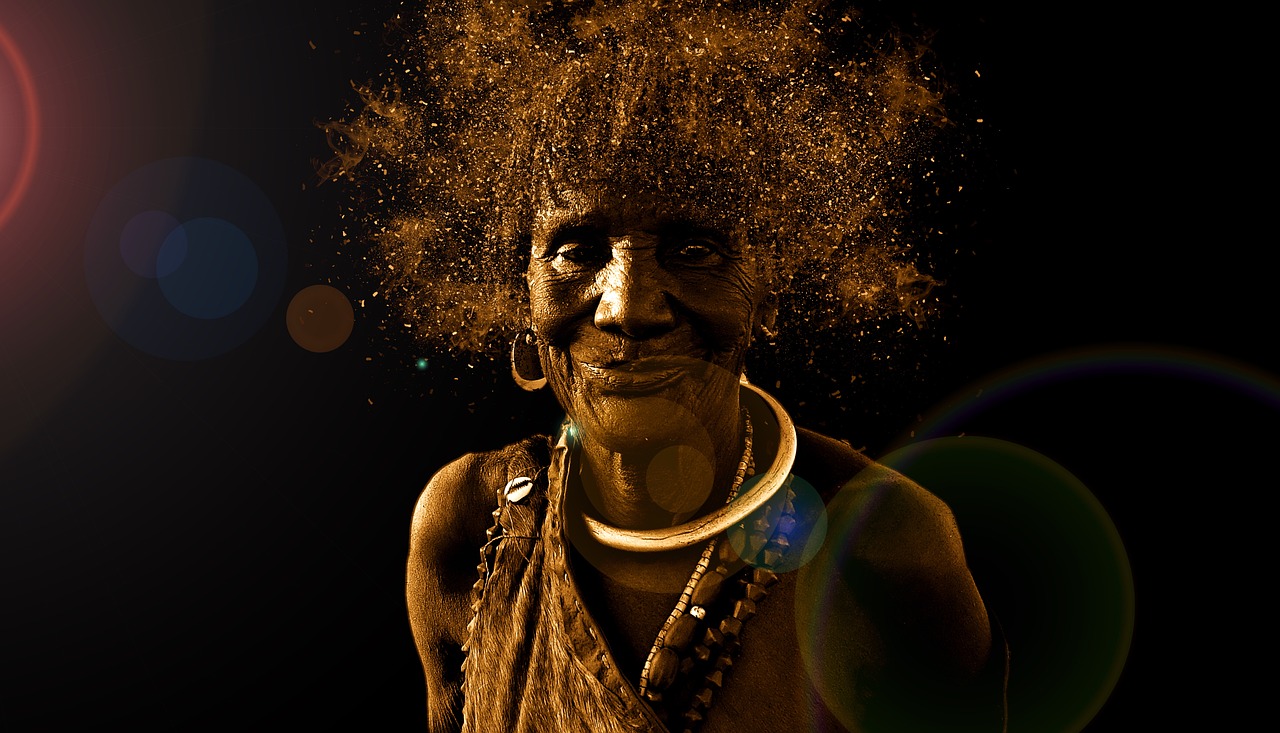
Kingdom of Ghana
The Kingdom of Ghana, also known as the Wagadou Empire, was a powerful West African civilization that thrived between the 6th and 13th centuries. Its influence extended far beyond its borders, shaping the political landscape and trade dynamics of the region. The kingdom's strategic location allowed it to control the trans-Saharan trade routes, becoming a hub for commerce and cultural exchange.
One of the key aspects of the Kingdom of Ghana was its sophisticated political organization. The empire was divided into provinces ruled by local governors, who paid tribute to the central king. This hierarchical structure ensured stability and efficient governance, laying the foundation for future African states.
Economically, Ghana was incredibly prosperous due to its control of gold and salt mines. Gold was abundant in the region, and Ghana capitalized on its resources by establishing trade networks with North African merchants. The kingdom's wealth and economic prowess attracted traders from distant lands, fostering a vibrant marketplace that fueled its growth and influence.
Moreover, the Kingdom of Ghana played a crucial role in the trans-Saharan trade routes, facilitating the exchange of goods, ideas, and technologies between North Africa and sub-Saharan regions. This cultural interchange enriched the kingdom's society, leading to the adoption of new practices and beliefs that shaped its cultural identity.
Despite its eventual decline in the 13th century, the legacy of the Kingdom of Ghana endures in the present day. The empire's economic strategies, political structures, and trade networks laid the groundwork for future African civilizations, influencing modern governance and commerce in the region.
Frequently Asked Questions
- What are the main influences of ancient African kingdoms on modern culture?
Ancient African kingdoms have significantly impacted modern culture through their rich history, art, architecture, and traditions. These influences can be seen in various aspects of contemporary society, from art and architecture to language and trade practices.
- How did the Kingdom of Kush contribute to cultural exchange in modern society?
The Kingdom of Kush played a vital role in facilitating cultural exchange through its language, trade routes, and interactions with neighboring regions. This exchange of ideas and goods continues to influence modern societies and global connections.
- What is the lasting legacy of the Kingdom of Mali on global trade networks?
The Kingdom of Mali made significant contributions to global trade networks through its cultural, economic, and educational advancements. These contributions have left a lasting impact on modern African societies and their participation in international commerce.






